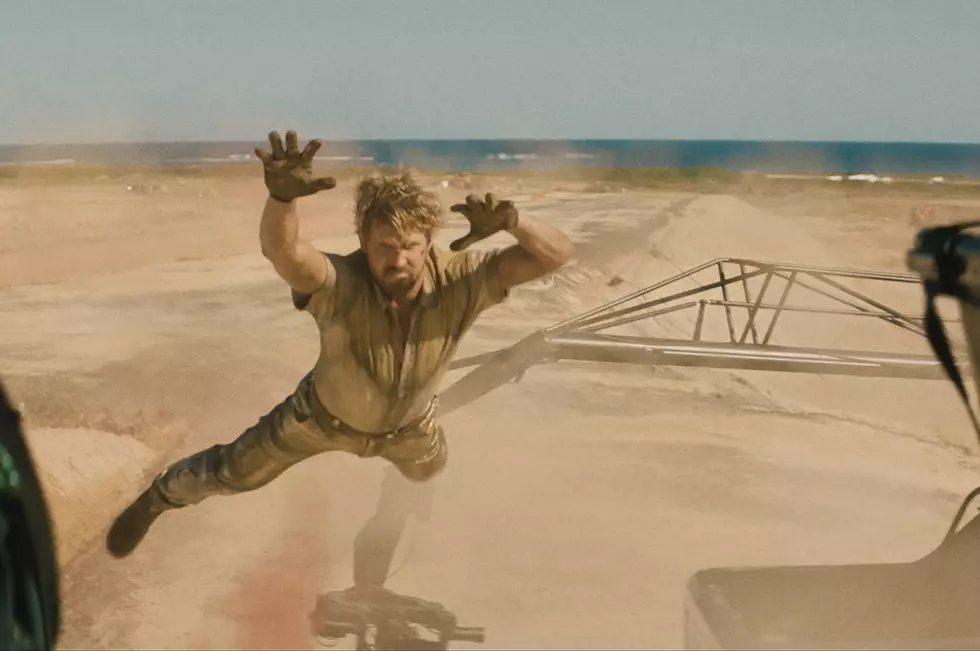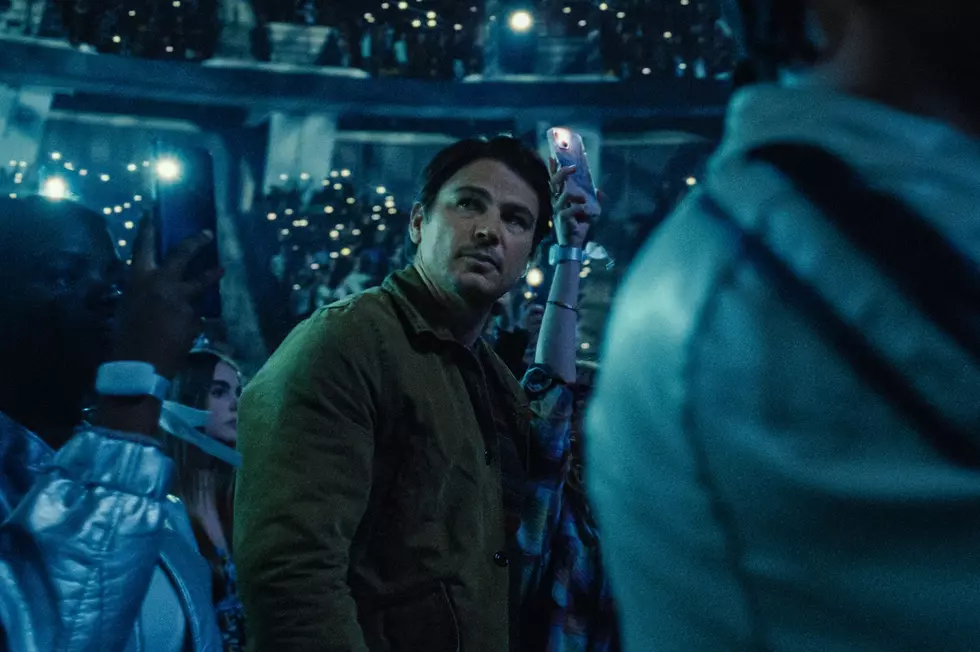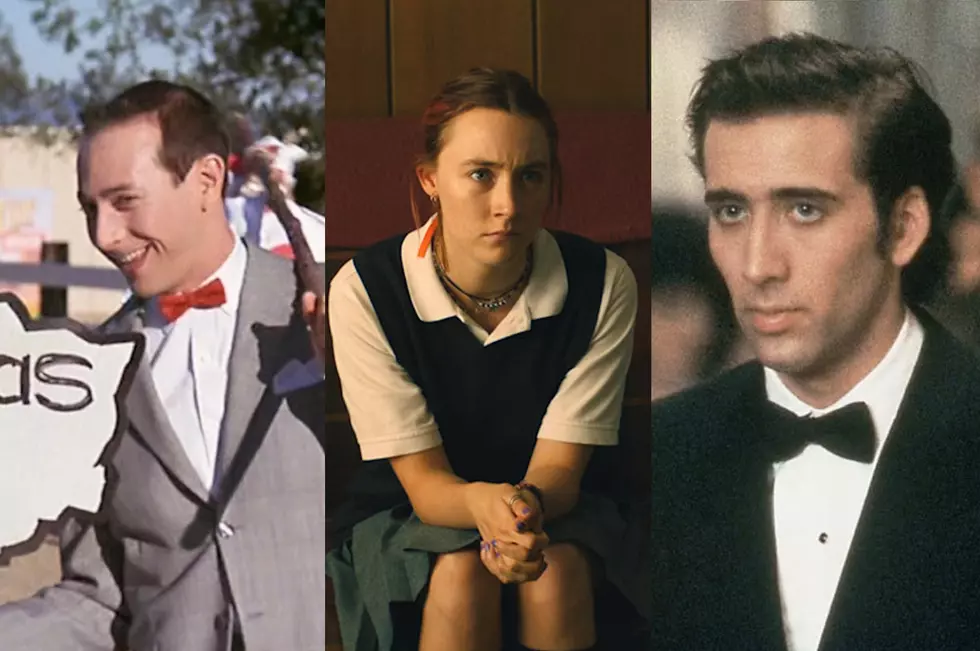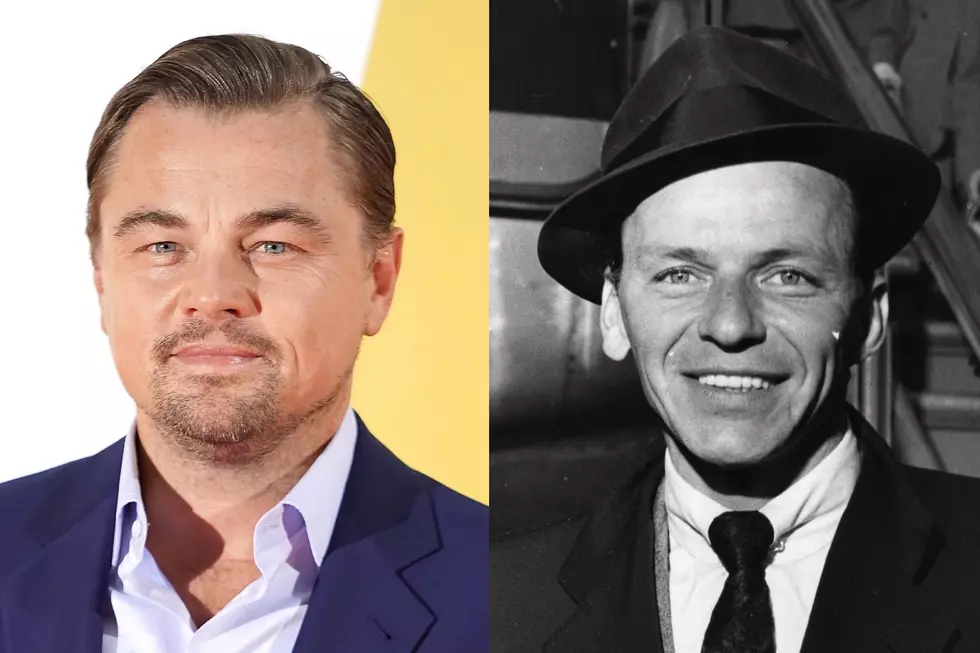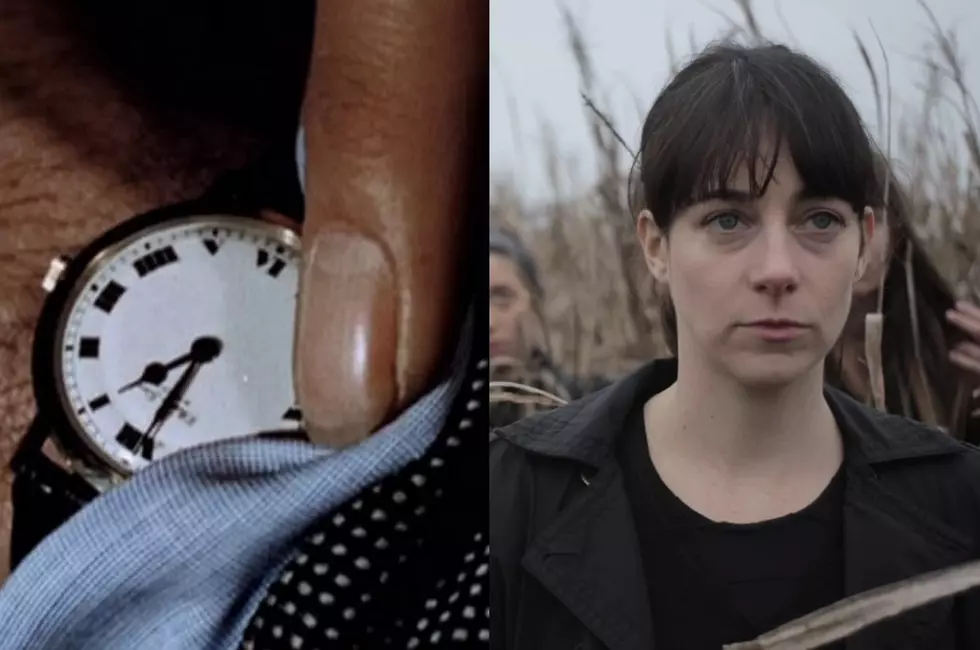
‘Man of Steel’ Interview: Producer Chuck Roven
Although his more recent work has stolen the hearts of fanboys over and over again, Chuck Roven is a remarkably unpredictable producer. All three of Christopher Nolan’s Batman films, not to mention 'Man of Steel', were produced under his auspices, but so was 'Twelve Monkeys.' 'City Of Angels.' 'Three Kings,' among many more. Roven is a proven commercial powerhouse whose calling card is, unlike contemporaries like Jerry Bruckheimer or Joel Silver, chameleonic understatedness. All of which underscores his suitability to tell a Superman story that razes the character’s identity and starts over from scratch, notwithstanding a few essential hallmarks.
We sat down with Roven recently to discuss 'Man Of Steel,' where he discussed the process of rescuing the last son of Krypton from a cinematic fate worse than death: the end of a franchise. In addition to talking about what needed to stay – and to go – from Superman’s considerable mythology, Roven discussed the challenges of reintroducing a known character to audiences in a new way, and reflected on what qualities his films possess in order for him to consider them successful.
After Superman Returns didn’t produce a sequel, it seemed like someone needed to reinvent Superman at least a little bit for modern audiences. What was the thing that you felt the character most needed as you were reimagining him for Man of Steel?
I would say that we wanted to make him relatable. That was most important, and to make him relatable is to give him challenges and choices that we’ve had, we growing up have had, and even though he has a unique circumstance, somehow find that connective tissue to us. And that’s really what was focused on. And then, to make sure we created a character that, even though he’s an alien with superpowers, had to make choices. The world around him wasn’t black and white, and the choices that he had to make weren’t black and white. Because in our lives, well, I’m a fair bit older than you and I was around in the ‘50s and ‘60s, I was growing up then, as complicated as the times were, and maybe they got more complicated in the late ‘60s, in the ‘50s, they weren’t complicated. Or at least nobody saw them – they didn’t come out of the seams yet. And so we needed to make sure that what the story was about dealt with the fact that people have complicated choices to make, or individuals or sentient beings or whatever you want to say.
Was there any concern about giving a character who is identified by his unassailable integrity the kind of existential quandary that he faces in the film?
He can be identified by that certitude once he’s made a decision about who he wants to be. As Kevin says, “good character or bad, you’re going to change the world.” So we felt that he wasn’t born that way. He had to evolve into that. And we’ve had amazing figures, real-life figures who we would say, like Abe Lincoln, who we would say are pretty unassailable in terms of his integrity, but he still chopped down a cherry tree! So we feel that you can create a character who has amazing morality and ethics but still has to struggle with that. That’s okay. That makes him relatable.
How difficult or easy was it to indulge in the pure fantasy of Superman and yet ground him in a world that audiences would find believable or maybe explainable?
I’ll tell you, it was what you hope to have happen when you’re in the creative process. You have the right alchemy of creative input between David Goyer, Christopher Nolan and Zack Snyder. Zack Snyder actually excels in fantastical elements and fantasy; Chris Nolan excels in that grounded reality. But Zack came into the process wanting to make this character more real, because he knew the more real, the more relatable he would be. So we all had that common goal that we started this conversation with – what’s that main thing we all wanted – and once we focused on that, it just seemed that everybody’s particular gift rolled out in support of that particular vision, but allowed the fantasy that you want to see on Krypton. Because I think that looked amazing; I sat there when the dailies came in and the visual effects came in and you could see what this world was going to becoming, notwithstanding how awesome the concept art was, I was going wow! But Zack’s reveal of that world was so wonderful – when he walks out on that platform and you see the civil war going on, you’re going, whoa! But it doesn’t feel like, oh my God, where are we, you’re going ‘I want to know more about this.’
Talk some more about maintaining a healthy balance between Zack’s sensibility and Chris’s. How much creativity did Chris exert given Zack’s strengths as both a visualist and conceptualist?
I just have to say, there’s always the danger of different creative visions; movies do have that. And even that can work out sometimes. But on this film, we didn’t have any huge push and pull in that process. The creative interaction was just excellent. Chris really recognized that he was in a sense the co-creator with david Goyer of he story, and he had just producorial creative input, which meant that he needed to, as producers do, let the director create his vision. And he did. And Zack went to Chris or to me where I had some good input, to share his vision and hear what the response to that vision was. But in all cases, it wasn’t like there ever was a circumstance where somebody said, “no, no, no, that’s not going to work.” Somebody might say, “that’s great, but while you’re doing that, think about this – let’s talk about possibly modifying it this way.” But not “that sucks.”
What parts of the Superman canon did you know had to be in the movie, and what parts did you feel freer in reimagining or even jettisoning?
Well, we knew he had to come from Krypton. We knew Krypton had to be a dying planet. We knew he had to have real parents and foster parents. Those were things that we knew needed to be in there. We knew that we wanted Lois Lane in there; it was either a choice of Lois Lane or Lana Lang, but Lana Lang didn’t really translate into his adulthood. So it just felt right to have Lois Lane as that big, iconic reporter. But again, we wanted to make her different than what Lois has been in the past, and we wanted to make their dynamic different – and you know it is different, which is, we think, really good. It gives her choices that she has to make. She’s not just doing one thing, like, I’ve got to discover who [Superman is] and the guy’s right next to her with glasses on. We just didn’t feel like we could do that, so we said that’s one of the things we’re not going to do. So I think that’s really it, because as the film escalates through the narrative we set up by making those choices, the res of it kind of takes care of itself because it’s got its own natural [momentum] going on.
'Star Trek Into Darkness' rekindled a conversation about how much filmmakers should keep mysterious about their films in comparison to what they reveal to the public before they are released. How do you feel about that balance, since, in much the same way that film featured an iconic villain, this one has Zod, but you announced that decision on Day One?
We didn’t feel that we could create a campaign without letting you know that this guy was in the movie. He’s such a big part of it – he’s there at the beginning and he’s there at the end – and he’s critical to the arc of Kal-El. So we never really even thought about that. And you can tell from the marketing campaign that the last piece of the campaign was focusing on the dynamic between Zod and Superman, because we always knew that was going to be there, and that was going to be a really exciting part. But we felt it was really important to do a number of things first: one was to let you know that this was a different kind of Superman movie, so that’s why we called it Man of Steel. That’s why our first announcement piece was just two dads talking about their son.
Two of your upcoming projects are video game adaptations, which are notoriously difficult to get on screen successfully. Having successfully reinvented Batman and now Superman for the big screen, do you feel emboldened or is there more pressure in attacking those properties?
There’s real pressure on Warcraft because we’re making that film – I’m out of the development pipeline on that. Duncan [Jones] is the director, and Legendary is financing the movie, wherever they are. And we’re very excited about that – we’re going to start shooting it during the first quarter of 2014, and when you’re into preproduction on movies of this scale, the fact that you’ve only got six or seven months before starting, the train is moving fast. So you do feel the pressure of that. It’s a wonderful pressure, it’s like the pressure I feel that Man of Steel is opening in two weeks – it’s a wonderful pressure, but I feel it. And also the fact that Warcraft, for its type of game, is the biggest that ever was, so there’s that pressure. But I’m really excited about Duncan’s take on the material, we have a really good script that Duncan is rewriting that Charles Levitt wrote, and we’ve got a great working relationship with all of the Blizzard guys. So all of that track is moving really, really good.
What ultimately is your barometer for success with each film you work on? You could make a great movie that doesn’t make a nickel, or a terrible movie that makes a bajillion dollars – when do you feel like you’ve succeeded?
I mean, success has different definitions for me, but my primary goal as a producer is number one, when the movie’s finished, do I like it or am I proud of it, irrespective of the experience of making it, because I’ve had really bad experiences and still ended up with movies I loved. And I’ve had experiences where I ended up with movies that didn’t do as well financially but were still respected critically. So I would like very much for the film to either be successful financially or successful critically. Then I would feel good about the movie, as long I liked the movie. I’ve made movies that I don’t like, and I feel bad – it’s been a bad [experience]. But those two things, when I can have a film that’s loved by fans, is successful. And I do pride myself also as being a producer who delivers the movie for what the financial boundaries that we’ve put in – I haven’t gone over budget in a really long time and I don't’ like doing that. And I’ve found that you can make the movie in whatever capacity you want, and stay within that fence. So those are all of those things that make up success – but I’ve got to like the finished product. That’s most important.
More From ScreenCrush

